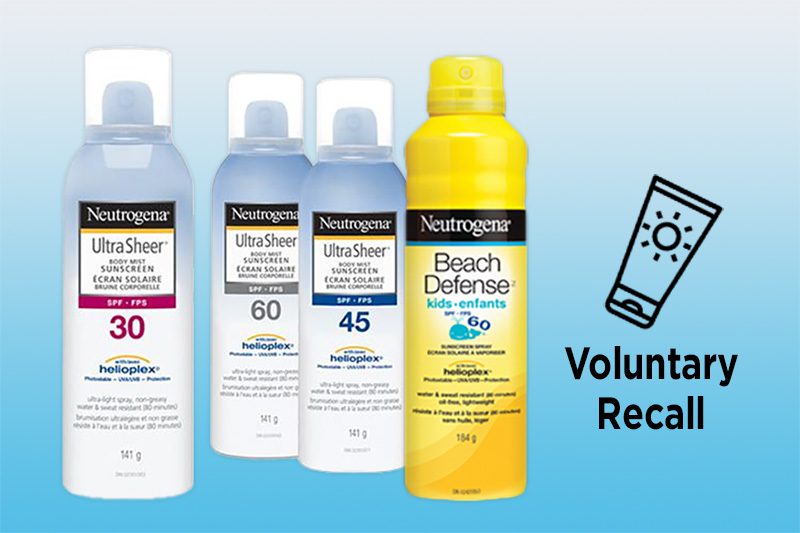Two Neutrogena spray sunscreens have been voluntarily recalled due to the presence of benzene, though the amounts present are not expected to cause adverse health consequences. Read the Aerosol Sunscreen Voluntary Recall Statement.
Sunscreens are available in various forms (e.g., creams, lotions, sprays). It is important to choose a sunscreen that protects against both UVA and UVB rays.
UVA light is responsible for long-term skin damage and aging, appearing as wrinkles and sunspots, since it penetrates deeper into the skin. UVB light has most of its effect on the skin surface and is responsible for sunburns, as well as the majority of skin cancers.
Physical sunscreens, with ingredients such as zinc oxide and titanium dioxide, protect against sun damage by reflecting the light away from the skin. As these are not absorbed into the skin, they are safer and are effective as long as they are evident on the skin surface. Chemical sunscreens absorb the sun’s rays, which results in a change in the protective ingredients in the sunscreen. Because of this, chemical sunscreens need to be reapplied every 2 hours to continue to be effective. They also need to have several ingredients to get full UVA and UVA coverage.
Many countries have started banning chemical sunscreens due to concerns about exposing marine life to their ingredients, particularly oxybenzone. None of our atoma products contain oxybenzone as an active ingredient.
Please chat with us about what sunscreen will be best for your needs, what SPF really means, proper sunscreen application, and other ways that you can protect your skin from sun damage.
